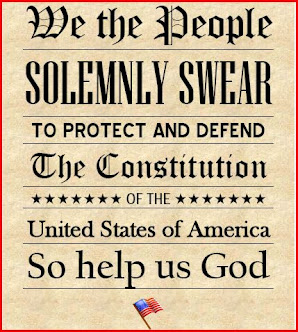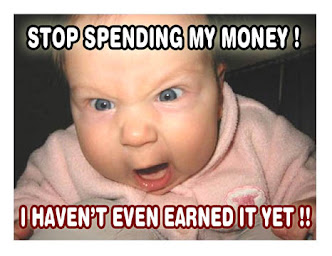OCCUPYING THE HUNGER GAMES
As the mom of a teenaged daughter, I find myself reading many books I normally might not, such as the less than exciting Twilight series (although kudos to author Stephanie Meyer for keeping it clean and having Bella wait 'til her wedding night - a rare and refreshing thing in young adult literature these days). But I like to know what my kids are reading, as there are so many questionable books out there. And so I found myself reading the much-hyped Hunger Games. I absolutely loved them. In fact, I read all three books in four days.
For those unfamiliar with the series, it follows the events of heroine Katniss Everdeen and the two young men who love her, Peeta and Gale. But this is no love story, not by a long shot. No, this book is bloodsport and survival. A David and Goliath story, in which Goliath isn't some rich banker or CEO; Goliath is a vicious, ends-justify-the-means, oppressive totalitarian governmental regime. Unfortunately, one of the stars of The Hunger Games, Donald Sutherland, (perhaps lead there a bit by the interviewer) said this at a recent interview:
Q: It's interesting that you could really connect it to the Occupy moment. The underdog speech is something you might hear on conservative radio.
Sutherland: Exactly, yeah. Yeah. Except for Rush [Limbaugh] [laughs]. I bet Lionsgate doesn't want us to dwell too much on Occupy Wall Street. But you're right. I went there. I went to Occupy Vancouver. It felt so good. Somewhere around '74, whatever we were doing was co-opted. It was commercialized. It became a brand and everybody lost heart. I have here [reaches for his briefcase], I have it here I don't want to take it out, The Port Huron Statement, that the SDS made in 1962... Oh god, read it. Read it! Read it! It's so -- it's just brilliant. It's really brilliant. It's brilliant today and I can't read it because I can't see properly, but it ends with something to the effect of 'You might think that what we are proposing is unattainable. But we're proposing that because otherwise what is going to happen is unimaginable.' And that's what happened.
Uh, okaaaay.... By the way, for those not in the know, the SDS is the Students for a Democratic Society - a radical '60's group that eventially spawned the Weather Underground, the radical group of bombers headed by William Ayers. So, what Sutherland expects us to believe then is that Occupy's main target isn't bankers, hedge fund managers or CEO's, it's the over reaching federal government? Interesting. And here I though that was the Tea Party. Silly me.
Anyhoo, back to the book. Learning a little about the story is all you need to see how wrong Sutherland is in his socialistic rapture. His interpretation is so off the mark that it's difficult to imagine he even read the script, let alone the books.
The setting is a post-apocolyptic America, now called Panem, which has been broken down into thirteen Districts, all ruled by the iron fist of the Capital's President Snow (Sutherland's character). Each district is known for the product it produces: District Four, being near the ocean, produced fish and seafood; District Seven produced lumber; District Twelve, Katniss' home, produced coal. Travel between districts was only allowed to Capital officials, military, and lesser officials stationed in the various districts, not the general population. If you were born in District Three, you died in District Three.
Many years before Katniss' time, District Thirteen rebelled against the Capital. Reprisal was swift and merciless - no less than the total destruction of the district - and the legacy of that rebellion was the Hunger Games.
The Games are a yearly event where two candidates, or 'tributes', were sent from each District to the Capital. The tributes, children between the ages of 12-18, were selected at the annual "Reaping", where one male and one female tribute would be randomly chosen from each district. Of those twenty-four chosen, only one would survive. The Games were a major event, broadcast to every District. Viewing was required.
The point of the Reaping and the Games themselves was psychological warfare, meant to keep the remaining districts docile and in line. The yearly reminder of the ruthlessness with which the Capital put down Thirteen's rebellion is the harshest imaginable: Defy us, and we will kill all of your children.
The prize for the winner? Fame and riches beyond measure courtesy of the Capital, plus additional bonuses of food and other necessities to the winner's home district for that year. This was an important incentive for Katniss, whose home district was the poorest of them all and starvation was something barely kept at bay. In fact, the spectre of starvation was so strong that, upon the loss of her father at a young age, Katniss took it upon herself to learn to hunt with a bow, sneaking out of the district into the fertile hunting grounds of the surrounding wilderness to keep her mother and sister alive.
Katniss' culture shock upon arriving at the wealthy Capital is much like the culture shock citizens of communist block countries endured after the fall of the Iron Curtain. As with totalitarian states in the real world, Panem's Capital sucked up all the resources of it's satellite districts, concentrating the wealth in the elite political classes and those who leech off of them.
The pomp and propaganda of the Games is reminiscent of both the Roman Circus and the propaganda films of the Nazi party. The blood quells the masses and every moment is spun politically to favor the State.
Katniss rebels against this system, not out of noble intent or a revived American spirit. America is something she knows nothing about, becasue her history was stolen from her long ago by the Capital. But self preservation and a desire for freedom cannot be quashed, not even by the most ruthless regimes. We see parallels today in Syria, where the people refuse to back down, even though their leader, Assad, has now resorted to bombing their cities.
Katniss eventually (in subsequent books) comes across an underground network whose sole mission is to depose Snow and bring down the Capital. She joins forces with them, only to discover later that the system they would impose is no better (and possibly a bit worse) than that of the Capital.
The point is, at every turn, Katniss chooses freedom over the totalitarian state. The enemy isn't the people who make the goods, the enemy is the government that unfairly prospers while the people they profess to be loving caretakers of languish and die from starvation and disease.
Perhaps Sutherland misunderstood his character. Perhaps he thought the character's name, President Snow, denoted some other title, such as CEO. Now granted, this first movie only covers the first book, which doesn't include the later information involving the possible overthrow of the Capital. So perhaps he thinks that Snow wins out in the end, and the nanny state, which Sutherland apparently believes knows best, continues on unaltered.
Unfortunately for President Snow, author Suzanne Collins ends the rule of the Capital the way many totalitarian regimes end - with rebellion and bloodshed. If the Occupy movement were a part of the story, they would be fighting on the side of their beloved nanny state, not the side of the rebels, who want to take away their "free" stuff and replace it with true liberty.
Long story short, my daughter and I can't wait to see the movie (opening nationwide March 23rd). And I can't wait for the sequels to start production, too, so that Mr. Sutherland can get a fuller picture of just what, exactly, the whole thing is all about.















0 comments:
Post a Comment